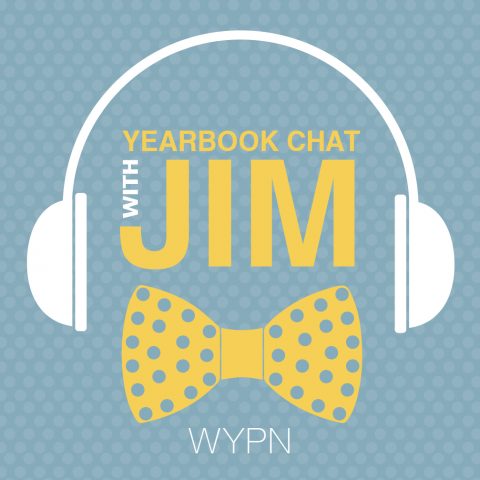Bobby Hawthorne knows how to tell a story. He also knows how to teach others to tell stories.
For the first episode of season five of the Yearbook Chat with Jim podcast, host Jim Jordan brings this electric storyteller on as a guest. We strongly recommend you listen to this episode – reading a synopsis of their discussion isn’t quite the same as hearing Hawthorne share about the time he threatened to run away from home when he was six years old.
As many great stories as Hawthorne and Jordan have to tell, in this episode they don’t spend too much time dwelling on the past. They quickly move to the present and what yearbook staffs need to do now to tell the story of the year at their school.
Just talk
The idea of writing can cause some yearbook staffs to collectively shudder at the beginning of the year, but Hawthorne said there’s no reason for the dread. Instead, they should reframe their thinking and talk to people at their school and to one another.
“Get them comfortable with speaking words to each other,” Hawthorne said. “Journalism is not an interaction with devices, it’s an interaction with people.”
Once a staff gets comfortable talking to other people, their writing automatically becomes less mechanical.
Teach by example
It’s difficult to learn from someone who doesn’t had that skill, but Hawthorne recognizes that not all yearbook advisers have a writing background. However, he said you don’t necessarily have to be a writer.
“Everybody can tell stories.”
Advisers can start by asking questions of their students, and not stopping at one-word responses like “fine.” Ask more questions. It’s the questions that distinguish the writers from the reporters.
“Writers are a dime a dozen. We need more reporters,” Hawthorne shared.
Be curious
To be a great reporter, you have to be curious and ask questions that will make your subjects comfortable. That’s when they start to tell stories.
When that happens, listen carefully and let them finish talking before you ask the next question.
“You want it to be a conversation, but you let them dominate it,” Hawthorne advised.
And sometimes, the best response to an answer is “Really?” Or “What happened then?”
Be prepared
The point is to treat it more like a conversation than an interview. Prepare for the interview and gather as much information about the subject beforehand, but treat it like a conversation once you’re face-to-face. You need credibility with an interview subject in order to establish a good rapport.
In addition to research, practice is key to a great interview. When a yearbook staff practices with each other, their subsequent interviews are much more likely to be successful.
After the interview
Hawthorne likes to transcribe his interviews as soon as he can once they’re done. He hasn’t had much luck with transcribers.
“I go ahead and go through the grueling part of transcribing it. I know a lot of kids want to do the snippet thing, where you get this really lovely, six-sentence, fairly long quote. And they’re going to take two sentences out of it and leave the rest of it on the floor, so that the whole story is a series of two-sentence quotes, two-sentence transition. When in fact, you ought to have eight sentences, eight sentence transition,” Hawthorne said, explaining that it creates a rhythm that’s unpleasant to read.
Write better stories
To understand how to write better stories, start by reading and deconstructing great stories. For starters, Hawthorne recommends the “Portraits of Grief” series that was written after Sept. 11, 2001.
He also recommends focusing on the story, the person it’s about, and the voice.
“All that matters is tell the story,” Hawthorne shared. To bring a yearbook to the next level, write better stories.
“A yearbook is a collection of stories. Every photograph that you have is a story.”
Learn more from Bobby
You can hear Hawthorne and Jordan’s entire talk on the new episode of Yearbook Chat with Jim. It’s available at walsworthyearbooks.com/podcasts or search for Yearbook Chat with Jim wherever you choose to listen to podcasts.





